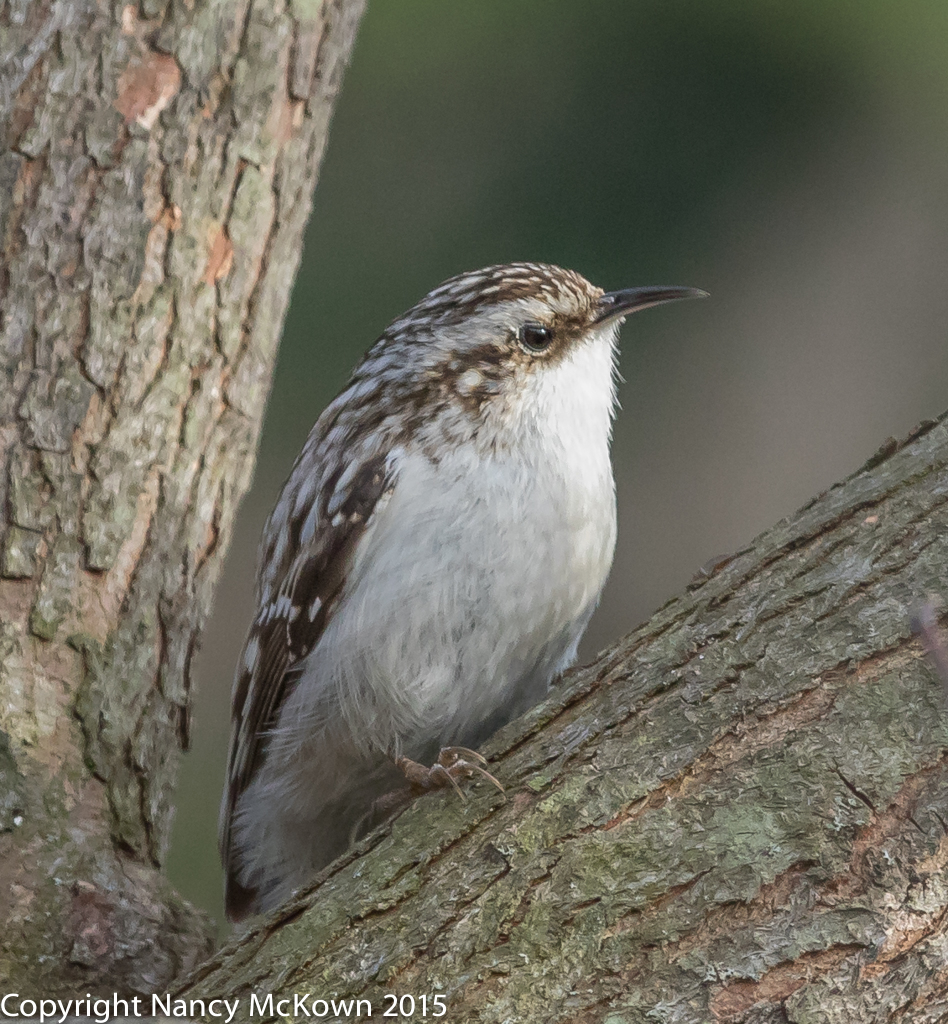Photographing the Tiny Brown Creeper
The Brown Creeper is a tiny and well camouflaged tree clinging bird whose spotted upper parts blend very well with the dark bark of most trees. Long, stiff tail feathers and huge feet and claws (relative to its size) allow these little birds to spiral up and down trees hunting for spiders, insects, eggs and pupae. Their long beaks (thin and curved) easily reach deep into crevices in the tree bark.
It’s difficult to track these little birds with a lens because they move in and out of view so fast. This Brown Creeper was foraging for food on a tree very close to the camera. I was able to photograph him when he stopped long enough to wrestle a tiny bit of insect egg out from under the tree bark and then swallow it. (See photos below.)

ISO640; f/5; 1/1000 Second

Successfully Swallowing Insect Egg that he Burrowed Out from Beneath the Bark.
ISO640; f/5; 1/1000 Second
When Birds Come Close to the Camera
I know I’m always writing about the need for MORE focal length to capture good photos of those far off birds. However, at the other end of the spectrum, I’m often amazed at just how close I can be to small birds with my Canon 500mm, f/4L II IS USM super long telephoto lens and still achieve focus. It is true that most birds are too cautious to come that close to my camera. However, sitting in my library waiting for new spring birds, windows open, 2 cameras on tripods at the ready, a small bird (chickadee size) can come as close as 3.7 m (12.14 ft) and the lens will still lock focus. A small bird, like the Brown Creeper, fills the frame nicely at that close distance. (Note: The 3 position focus limiter which allows you to restrict the focus “hunt” to only close subjects and improve focus lock times proves to be very helpful when birds are in close range. Read more at this post.)

Taking a Rare Break.
ISO1250; f/5; 1/800 Second.








